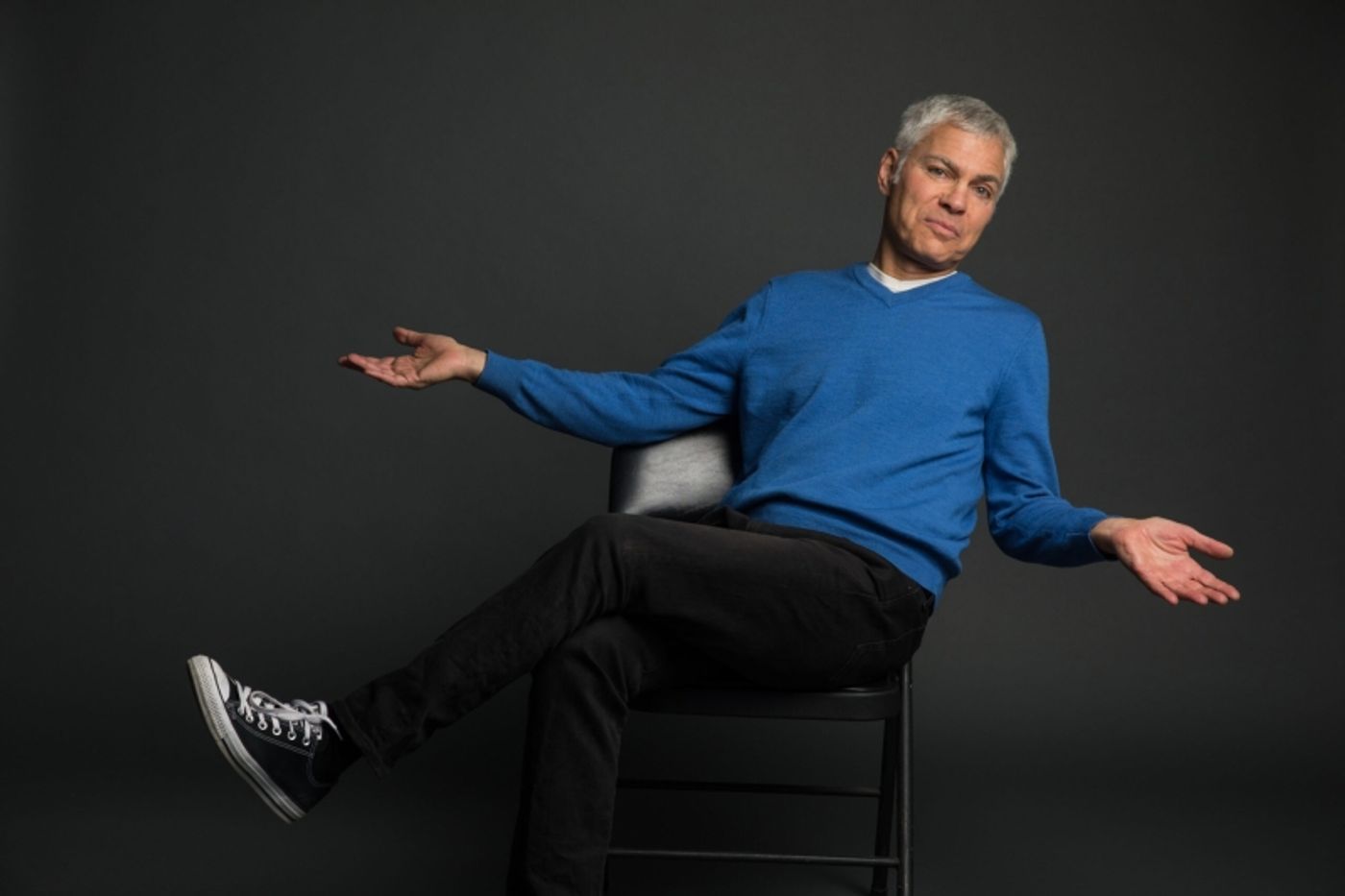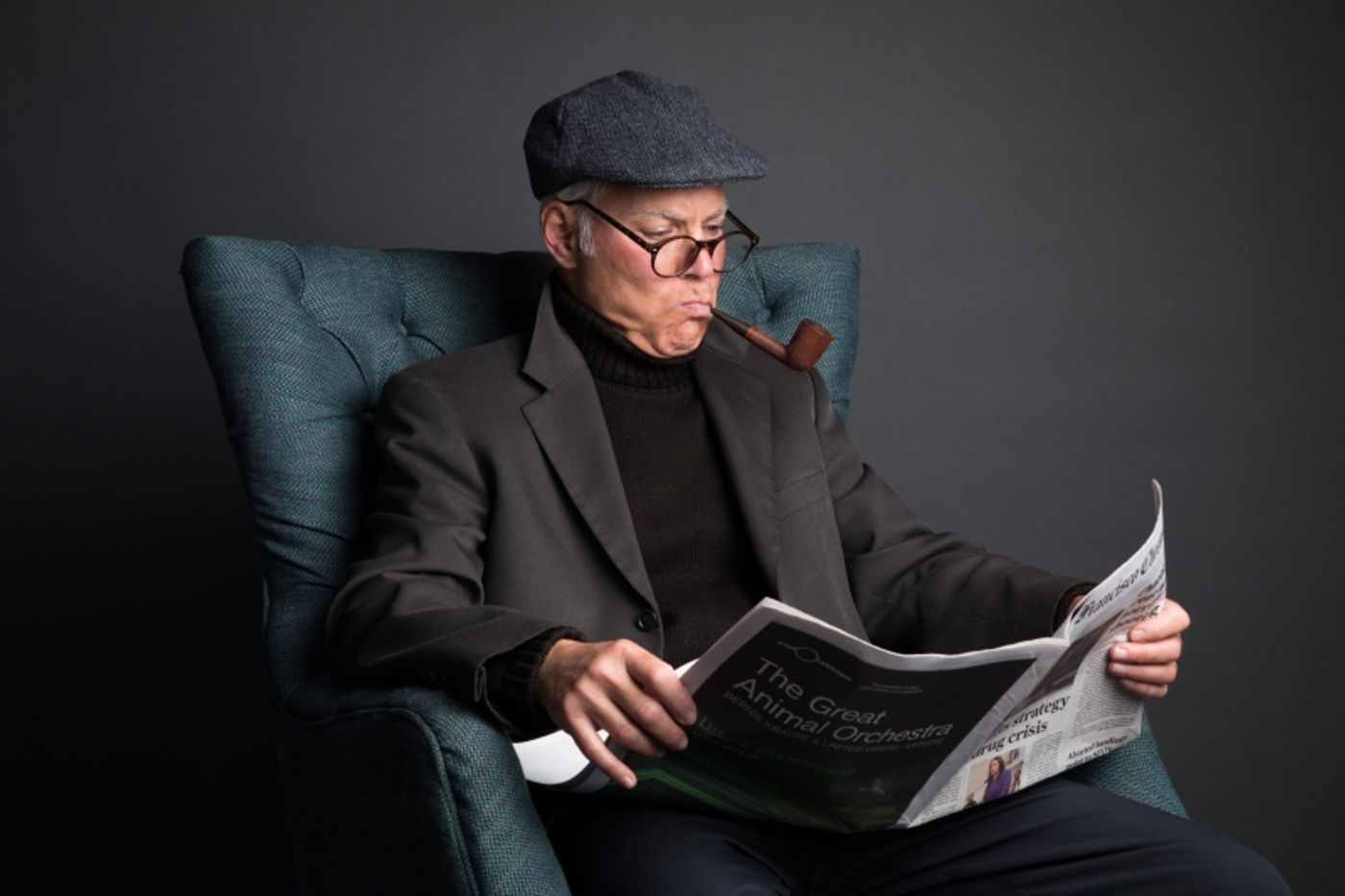Interview: Steve Budd of SEEING STARS at The Marsh Berkeley
The actor-writer's hilarious and heartfelt world premiere solo show runs on Saturdays through July 13

If you’ve ever desperately wanted a family member to change, you should be careful what you wish for. Steve Budd actually had that experience, but it didn’t exactly turn out as he'd hoped. When he moved back in with his parents at the age of 31, he was startled to find his gruff, distant father transforming before his very eyes and realized he was in the for the ride of a lifetime. Budd has now turned that true story into a heartfelt and hilarious solo show exploring family dysfunction, mental illness and a son’s desire to connect with his dad.
Budd is an actor, writer, storyteller, and award-winning solo performer living in Oakland, California. Originally from the Boston area, he trained at The Marsh and with The Groundlings in L.A. and has performed all over the Bay Area, including with the San Francisco Playhouse, Custom Made Theatre Company, New Conservatory Theatre Center and Marin Shakespeare Company, and with The English Theatre Company of Israel. His solo show What They Said About Love enjoyed a three-month run at The Marsh in 2018 and was named a Theatre Bay Area Top 5 Solo Show.
I caught up with Budd by phone last week just before Seeing Stars had its very first performance. We talked about what prompted him to create the show, why it was so important to him to tell this specific story at this time, what kind of father his dad was and some other works he already has in the pipeline. In conversation, Budd is very direct and clear-eyed, with an ever-present sense of humor. The following has been condensed and edited for clarity.

How would you describe Seeing Stars?
It’s a story about family dysfunction, mental illness and father-son relationships - and as I like to say, it’s a comedy. [laughs] Serious subject matter, but it has a lot of laughs, and it’s autobiographical.
How do you make that kind of subject matter funny?
Because I have a sense of humor and I’ve done standup, kind of the way my mind works is seeing the humor in things. I mean, my dad had sort of a change that could be seen as very serious, but there’s also humor in the way he expressed himself. That’s the way it often is with people when they’re going through some kind of crisis or trauma, there’s the serious side and then the humorous side. And these events took place about 30 years ago so it’s given me the time to see more of the humor in the events.
Given that these events took place so long ago, how did you decide this was the right time to turn them into a theater piece?
I started telling this story, maybe a 10-minute version, a decade ago as a story telling thing, you know at The Moth-type venues. Then I wanted to turn it into a screenplay and worked on it that way for a couple years. And then I just really wanted to get the story out there, and since I’ve done solo work this seemed like the best way to do that. The story’s been so present for me and held onto its power for me that I wanted to put in onstage.
What does the title Seeing Stars signify to you?
If you see the show, you’ll see that it takes on multiple meanings. There’s a lot of different layers, some basically metaphorical, but also literal because back then I had a job teaching kids about the night sky, so that enters into it. Also I wanted to be a Hollywood star, that’s part of the journey woven through the story, my desire to be an actor and pursuing that. Then there’s also a whole psychological element that ties into my dad’s fate which adds meaning to the phrase.
Is your father still alive?
No, he passed away about nine years ago.
What kind of dad was he?
He was kind of the proverbial distant dad. Not an uncommon figure, I think, for a lot of people, especially that generation raising kids in the 60s and 70s. My image of my dad is he sits reading the newspaper, smoking his pipe, listening to classical music. He wasn’t super-interested I guess in engaging with us. I kind of had to twist his arm, to say the least, to get him to go out and play catch with me, that kind of thing. So that shows up in some childhood scenes, and even just how my dad was when I moved back in with my parents at the age of 31.
When you moved back in as a young adult, did you feel like you knew him by then?
He was a hard guy to know so I’m not sure I ever really felt like I knew him, but I was kind of hoping I might get to know him better at that time. Some events ensued that meant maybe I got more than I bargained for, but I can’t say that overall I really got to know my dad that much better. I think maybe later on I did, a bit, as he got older.

What kind of son do you think you were to him?
Wow, that’s a tough question. I know as a kid I was kind of shy. I don’t know if I was shy around my dad, but we were a family of readers so we were all kind of reading. At times I think maybe I wanted more of his attention, whether it was to look at my coin collection or stamp collection, or baseball cards, or play catch, maybe than he wanted. But it’s hard to know what he would have been looking for in a son since he didn’t seem that, I guess, interested.
You said that this was a story you wanted to get out there. What did you mean by that?
I think partly that so many people struggle with their relationships with their parents, wanting things to be different than they are, so I think a lot of people can relate to that. But I also think that with COVID and the economy, more people in their 20s and 30s, certainly their 20s, are moving back in with their parents, not even able to get their own place after college. So there’s sort of this whole wave of that as well of people moving back in who could relate to the show.
And then I was just wanting to have more awareness of mental health issues, and to get people talking about stuff. Which is something I try to do with all my shows, whether it’s relationships or sexuality, to have people talk about things that they tend not to talk all that much about.
Just because you have a compelling story to tell doesn’t automatically mean it’s going to translate to the stage. When you’re putting a show together, what’s the key to making it really work as a piece of theater?
What makes a good piece of theater, I think, is something people can relate to, where they can see themselves. But it’s always that thing of taking the personal, the particular, and making it universal. That means telling my story in the best possible way so it’s really fascinating with plenty of specifics, but also that people can relate to it and see themselves, their own issues with their own parents, or their own kids or any other relationships that they happen to be in where they might be struggling with things not being the way they wish they were, or somebody going through a traumatic experience.
Part of it is discovered through the process of collaborating with my director, Mark Kenward, but a lot of it involves taking narration and turning it into scenes. Like let’s find the scene, let’s go further with that, let’s write some more dialog, go back and think a little bit more about what was really burning there, where the energy was in that scene or in that moment, what did you want, what did they want, what might you have said, what are you leaving out?
Do you have anything else in the pipeline after this run of Seeing Stars?
The first show I did at The Marsh back in 2018 was called What They Said About Love and I’m working on a Jewish version of that called Oy! What They Said About Love [laughs] which has some different characters and different subject matter in it.
Unlike Seeing Stars, my first two shows, What They Said About Love and What They Said About Sex, were both created in that kind of Anna Deavere Smith style of interviewing a lot of people and then making a show using excerpts from those interviews. So I’m working on another show that might be called What They Said About Being Jewish. I’m interviewing a lot of people about their Jewish backgrounds and experiences and beliefs, and hopefully that will be a future show.
(all photos by Cheshire Isaacs)
Seeing Stars performs on Saturdays at 5pm through July 13 (no show June 22) at The Marsh Berkeley (2120 Allston Way, Berkeley, CA 94704). For tickets and additional information, visit themarsh.org or call 415-282-3055.
Videos

